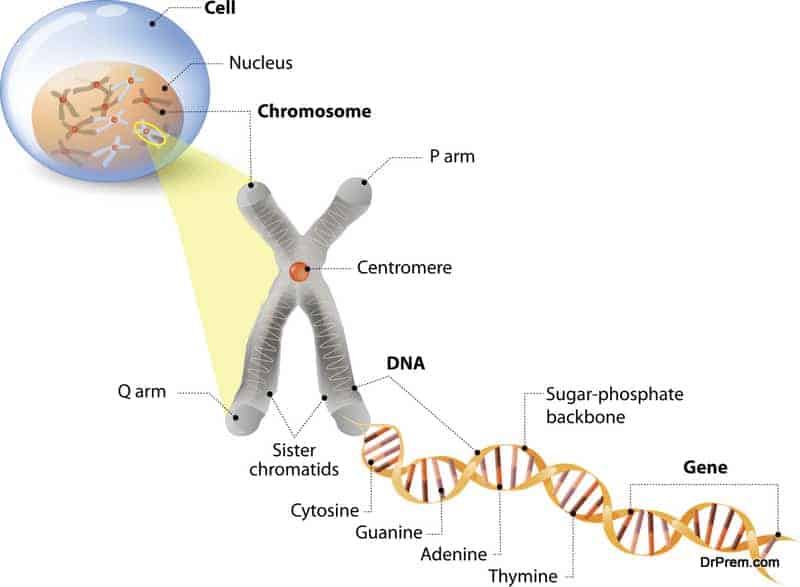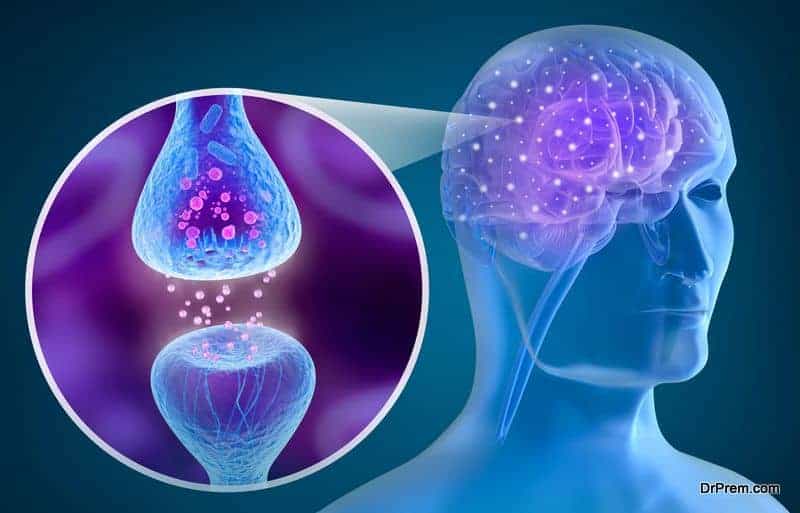We have discussed time and again about the positive impacts of practicing mindfulness on our mental health. Performing activities like yoga, meditation, tai chi, etc. have shown powerful and steady impacts on mental diseases and mental health. But various studies have now even linked these mind and body practices to be beneficial for our physical health. More precisely, mindfulness activities can actually cause alteration in our DNA.
How Mind and Body Practices Can Help In Changing Your DNA For Good
-
How Stress Alters the genes?
-
How mindfulness practices can help with changing the DNA for good?
-
What are the benefits of meditation on our physical health beyond telomere preservation?
-
How can it all be just a placebo effect?
-
What are the many questions that still need to be answered about changing Dna for good?
I think therefore I am- this very famous western philosophy, if we think about it actually holds true. Our thoughts can actually shape the chemical compounds in our DNA. Our minds and bodies are not separate entities. They are intertwined. If we house negative thoughts in our minds they will make their way to our body and affect it negatively. Similarly, if we house and practice positive thoughts in our minds it will have a positive effect on our body.
How Stress Alters the genes?
Mental health
- There are several hormones secreted when humans are exposed to stressful conditions. These hormones have various functions and are necessary for the adaptation of severe stress. However, these same hormones can be pathogenic when the organism is persistently exposed to it for a long period of time.
- People say, a broken heart (stress) can actually kill you, but if not it might (high chances) alter your DNA in a negative way. It is claimed that heart diseases and depression are comorbid. According to various researches conducted in Denmark, stress can control our genes. It found that exposing human cells to stress activating compounds can actually turn on silent genes.
- In a recent study conducted on mice, there was a very compelling link found between chronic stress, genetics, and mental illness. The research established that the genes of mice that were exposed to chronic stress went through certain changes. The chronic exposure of stress in the mice resulted in changes in gene expression. Scientists suggest that the hormones may affect the HPA axis (hypothalamic-pituitary-adrenal) through epigenetic modification. That is changes in the DNA that don’t alter the sequence but influence gene expression. Similar DNA modification has been noticed in people with clinical depression. The alteration has been linked to diseases like schizophrenia, dementia, depression, etc.
Physical health
- Exposure to chronic stress as a child can actually very severely affect your DNA. A team of researchers from Tulane University School of Medicine established that experience of any kind of traumatic events or exposure to violence during childhood can actually affect the DNA and leave lasting marks on the stretches of it.
- The study adds to the growing bodies of evidence that stressful mental conditions can permanently affect chromosomes. Excessive stress can affect telomeres. Which can lead to various cardiac and mental problems.
- Telomeres are a repetitive sequence of DNA found at the end of chromosomes. They are compared to the plastic cap at the end of shoelaces. They act as protective caps that protect chromosomes from degradation or sticking together.
- Excessive stress can influence the length of telomeres. The length of telomeres is associated with various health problems. Shorter telomeres have been linked with higher risks for heart diseases, diabetes, etc.
- Research found that exposure to stress and traumatic events during childhood lead to shorter telomeres length during adulthood.
- To take another example, let’s consider the study published in the proceedings of the national academy of sciences. The study found that exposure to chronic stress that can activate a person’s flight or fight response (it affects the sympathetic nervous system) has the potential to cause changes in the way genes are activated in immune cells.
- To make it simple, excessive stress can fire up the cells, which may lead to an increase in the expression of genes resulting in inflammation. Inflammation of cells increases the risk of various kinds of health diseases like heart diseases, obesity, diabetes, cancer, etc.
How mindfulness practices can help with changing the DNA for good?
Lots has been talked about the positive effects of practicing mindfulness on our mental health and emotional health. Mindfulness practices have been linked to making our minds more efficient to deal with various kinds of stresses. Practicing emotional wellness has been linked to various positive changes in our mental health.
However, various recent studies have linked these mindfulness practices to better physical health as well. There are various studies that support the claim that we can cause positive changes in our DNA through mind control.
There is this hypothesis called the molecular signature of mind-body interventions. It claims that the expression of a gene can be changed through meditation and related practices. Considerable amount of evidence suggests the positive impact of mind and body interventions on our mental as well as physical health. However, there is very little understanding of the process by which the mind and body intervention can actually alter the genes.
According to one hypothesis, mind and body intervention can actually reverse the impact of inflammation of cells caused by stress. Various studies indicate that these mind and body intervention practices can help in changing DNA by down regulation of the nuclear factor kappa B pathway. This is opposite to the effect of stress on these cells.
A 3-month long meditation retreat research on 38 individuals (mentioned in frontiers) was conducted to assess the effects of mind and body intervention practices such as yoga and meditation on BDNF (brain-derived neurotropic factor), pro- and anti-inflammatory cytokines, and cortisol levels.
These practices were linked to a positive influence on physical health. It was found that it led to an increase in BDNF. It also led to an increase in cortisol awakening response and changed the inflammatory marker expression.
As we discussed above the harmful effects of stress on our DNA specifically our telomeres. How exposure to too much chronic stress can affect the size of our telomeres, which in turn leads to various health problems. Recent studies have rather discovered opposite effects of mind and body practices on the size of our telomeres. Various researches have shown that people who regularly practice meditation and other mindfulness activities show an increase in the length of these telomeres which is linked to better health.
Another study on the usefulness of mindfulness on cancer patients was published in the Canadian journal of cancer. It was observed that meditation helped in preserving the length of telomeres. The study was conducted on breast cancer patients. They were divided into three groups, one group practiced intensive meditation, the second group practiced group therapy, and the third was the control group. 88 women participated in the study and had their blood analyzed for telomere length before and after the study. It was found that the telomere length was maintained in the first two groups but the length decreased in the control group.
The correlation of telomere length with health goes back to 2008. The study conducted in 2008 by Dr. Dean Ornish (diet and lifestyle guru) on prostate cancer patients found that a mix of stress management, aerobic exercise and vegan diet had a positive influence on the activity level of the telomerase. Telomerase is the enzyme that is responsible for maintaining telomeres by adding more DNA on the end of our chromosomes. The study found that mindfulness practices along with the vegan diet increased the activity of telomerase.
Although there isn’t enough data available to draw any kind of concrete conclusion, the area looks promising. A lot of research is still required to understand the functioning of genes and how exactly meditation and other mindfulness practices influence their expression or if it has any kind of real influence at all. We can’t completely ignore the correlation found by various studies between the practice of meditation and other stress management activities and the length of telomeres. If stress can affect it stress relief can have impact on it too. Nevertheless it feels like good news is on its way when it comes to the effects of mindfulness activities on our DNA.
The length of telomeres is linked with longevity and various other health benefits. If there is even a 50 percent chance that meditation and like practices can actually change your DNA for good, then it’s a chance worth taking because you have nothing to lose.
What are the benefits of meditation on our physical health beyond telomere preservation?
A study was published in PubMed with the lead researcher Carlson on “Mindfulness-based stress reduction in relation to quality of life, mood, symptoms of stress, and immune parameters in breast and prostate cancer outpatients.” The study found how meditation affects the overall physical health of the person. The mindfulness stress reduction program showed that in generally healthy people who are involved in the program witnessed higher production in antibody titers to the flu vaccine.
According to Carlson, there have been various researches to study the effects of mindfulness on HIV and diabetes and the results look promising. Past findings also show that high levels of stress can increase the chances of catching the common cold and viral infections.
How can it all be just a placebo effect?
Many experts believe that the impact of mindfulness is nothing but a placebo effect. It comes down to your mind, it feels that it is being treated and thus your body starts healing. When the patient is bombarded with all the information on how mindfulness is effective and can heal you, they raise a certain kind of expectation from the treatment. There is a psychological benefit that is achieved from the patient’s expectation of the treatment rather than the treatment itself.
Another factor can be that it makes the person more hopeful and filled with positive thoughts. They are better able to manage the stress that comes from their diseases and thus respond better to medication. Because direct physical benefit or not, managing stress and emotional distress is important for both mental and physical health.
What are the many questions that still need to be answered about changing Dna for good?
There are many questions that still needs to be explored before we can come down to some concrete conclusion and start prescribing meditation instead of medicines as a cure:
- Are mentally rooted telomeric changes long lasting?
- Will the same pattern that was observed for breast cancer patients and prostate cancer patients hold true for other types of cancer?
- What exactly is the significance of maintenance of telomere length? How exactly does mindfulness practices work in maintaining the length?
- What precisely the effects of mental intervention will be if it is offered to the patients at the time of diagnosis and treatment.
There is a lot still left to explore, but it is definite there is some correlation between mind and body practices and our physical health. Even though the exact functioning of it is still to be explored, one cannot look away from the benefits that it has to offer. We might not know how exactly it works in making us healthier, but there is enough data to correlate that practicing mindfulness activities is beneficial for us and makes us healthier.
















